
OR
Cover Story
Journalists who perished in the Maoist armed conflict in Nepal
Published On: January 14, 2023 09:05 AM NPT By: Nagendra Upadhyaya
_20230114102317.jpg)
KATHMANDU, Jan 14: It has been 16 years since the political parties signed a Comprehensive Peace Accord (CPA) to formally end the decade-long Maoist insurgency which tormented the country and the citizens between 1996 to 2006. However, countless people killed during the armed insurgency and their families are still denied justice. CPN (Maoist Centre) Chairman Pushpa Kamal Dahal, the leader who led the armed insurgency, currently leads the government with unprecedented support in parliament. The harrowing tales of the victims are fading from the memories of the general public but those who suffered during the war are still tormented by the wounds that never heal. It is estimated that the war resulted in the deaths of over 17,000 people, many of them facing extreme torture in the extra-judicial killings by both the then Maoist rebels and the state’s security agencies. Among those who were killed include journalists, who were in the forefront of war for carrying out their professional duty. Republica’s Nagendra Upadhyay has compiled a list of some journalists who were tortured to death during the armed conflict with hope that the the contributions made by slain journalists do not go in vain and that they are provided with justice, if not reparation to their family members who are struggling to make ends meet.
Nawaraj Sharma (Basanta)
Nawaraj Sharma (Basanta) of Kalikot in the former Karnali Zone used to publish ‘Kadam Weekly’ newspaper from Surkhet. Although the newspaper was registered in Kalikot, there was no printing press in the district. So, he used to publish the newspaper from Surkhet and distribute it to the districts of Karnali by a helicopter.
The then Maoist rebels had launched the decade-long insurgency in February 1996. During the armed conflict, there was no one in the community who was not targeted either by the government or the insurgents.
In November 2001, there was a ceasefire between the government and the Maoists. Four months into the ceasefire, Sharma returned to his village in March 2002. On 2nd May 2002, the Maoists said “we want to consult with you” and took him with them. The family did not imagine that the Maoists would abduct Sharma as there was a ceasefire between the two sides. On June 2, Maoists killed Sharma by extreme torture in the power house of Sannigadh small hydropower project. The same night, the Maoists posted a notice on the house, citing the reason for the killing. It was written in the notice - “He was killed because he provided important party information to the government’s security agencies and did not pay back Rs 1500 to a local Dalit.”
After the death of the bread-winner, his wife and three children were left in misery. Rita, who became paranoid after her husband's murder, died seeking justice. His eldest daughter Sangita did not get higher education. Daughter Sabu and son Jeevan could study only under SOS.
"The armed conflict destroyed our family. We lost our parent’s shelter," said Sabu, "Those involved in the murder of my father have not been punished yet, and we have not even found my father's body." The Maoists themselves have mentioned the place where Sharma's body was buried. Despite requests to the state and rights organizations for excavation, it has not been completed so far. "At least there would be some consolation if the body was found," she said, “But even the state did not help in this."
Gyanendra Khadka
On August 6, 2004, there was a parent meeting at Janata secondary school, Jyamire, where journalist Gyanendra Khadka used to teach. While the gathering was going on, at around 2:30 in the afternoon, four unknown men entered the school. No one could distinguish who the men disguised as ordinary villagers were. About half an hour later, the principal of the school, Thakur Nath Kuikel, was speaking on the stage. Two of those strangers furiously came from two sides and started to hold him and tie him up asking if he was Gyanendra. One of them took out a pistol and a grenade in his hand, told everyone to be quiet, and took Gyanendra who was tied up saying they would free him in 10 minutes.
When his daughter Ajita saw Khadka being taken through the way to their home, she informed her mother Mithila about it. After walking about 15 minutes from the school, Gyanendra was killed by being tied to a volleyball pole in Devisthan of the village, in front of Mithila, who had gone behind, as soon as she heard the news. The body of Gyanendra, tied to a pole, was picked up by the local people the next day, about 18 hours after the murder. After the dead body was taken to Indrawati Dobhan, the security personnel recovered a letter - the “charge-sheet” - from Khadka's body. In that letter, the Maoists had leveled 10 charges against him, including being an informer of the government security forces.
At the time of his murder, Khadka was the Melamchi area correspondent (stringer) of the Rastriya Samachar Samiti, the state-owned news agency. After starting journalism in the year 1997 through Janapratishta weekly published from Kavre, he also worked in newspapers including Samachar patra daily, Sindhusandesh weekly published from Sindhupalchok.
Khadka is survived by wife Mithila, two daughters Ajita and Asmita and a son Ashwin. Wife Mithila says that the Maoists killed her husband for no reason, without mistake. The list of mental stress she went through after the death of her husband is long. She is enraged that the state has not provided free health, education and employment to the war victims even after the end of the conflict. Gyanendra's father Bishnu Bahadur is of the opinion that those directly and indirectly involved in the murder should be prosecuted according to the prevailing laws. The family complains that even after the completion of the peace process, they have not been able to feel justice because the killers have not been prosecuted.
Dekendra Raj Thapa
On 26 June 2004, journalist Dekendra Raj Thapa had gone to negotiate with the Maoists on behalf of the civil society after the distribution of water supply to the district headquarters Dailekh was blocked for 52 days. Thapa, who had gone to negotiate, was abducted by the Maoists. He was tortured and killed by burying him in a pit on 11 August, 2004.
Thapa was killed 45 days after his abduction. The Maoists killed him on 11th August 2004 in Naumule Rural Municipality (formerly Dwari VDC-1) and hid the body for four years. Four years after the incident, the body was exhumed at the initiative of Federation of Nepali Journalists and human rights workers. Dekendra is survived by two daughters and one son. The eldest daughter Nutan, 25, has completed engineering, while the other daughter Nisha, 23, is currently studying BSc whereas his son Nirajan, 21, is studying civil engineering.
Dekendra's wife Laxmi is employed as a fifth-level official in Birendranagar Municipality. Laxmi said, "The government did not support my children’s education. My daughter’s wish to study medicine could not be fulfilled due to the lack of finances." Dekendra's body was exhumed on 25th June 2008 and cremated on 2nd august 2008 at Sristhan near Dailekh headquarters. Under the leadership of the Federation of Nepali Journalists, Dailekh, a bust of Dekendra Raj Thapa has been built in the middle market of Dailekh headquarters. The square is also named after Dekendra. Journalist Thapa had started a settlement of the Badi community inside the headquarters. Thapa, who had devoted himself to social service, lost his life to the Maoists when he went to negotiate to solve the problem of drinking water for Dailekh residents.
Locals say that the drinking water services distributed in Dailekh, the school where he was murdered and the Naumule-Dailekh road section should be named after journalist Dekendra. "He was killed while going to negotiate with the Maoists to solve the drinking water problem," said Yagya Raj Thapa, the president of the Federation, Dailekh, "Therefore, we demand that the name of the water project, the school where he was killed and the road leading to Naumule be named after Dekendra."
After the cremation, journalist Thapa's wife Laxmi Thapa filed a complaint against nine people at the District Police Office, Dailekh on 22 September 2008. Since then, six people have been sentenced by the court. One of them is serving jail term while two accused are still absconding. After an appeal was registered on 12th December 2012, Investigation Officer (Police Inspector) Binod Sharma under the leadership of the then chief (DSP) of District Police Office Dailekh, Sharada Prasad Chaudhary, reached the Naumule area on 4th January 2013 and started the investigation by arresting five accused for the first time. The then district judge Dilliratna Shrestha had announced the jail term. The court has put the hearing on the case on hold saying it will proceed after the accused are arrested. After the start of the peace process, the judicial process started after Thapa's body was exhumed on 25th June 2008, from Naumule Rural Municipality-3, Dwari.
Regarding those who were arrested, on 7th December, 2014, the bench of the then District Judge Shrestha sentenced Nirak Bahadur Gharti, Harilal Pun and Jay Bahadur Shahi to two years, Laxmi Ram Gharti Magar to one and a half years and Bir Bahadur KC to one year in prison. They have already served their imprisonment. In that judgment, it was mentioned that the case had been put on hold for other accused so that the case can be initiated when they are arrested.
After that, the main accused involved in the murder was sentenced 17 years after the murder. Judge Dandapani Lamichhane of District Court Dailekh sentenced those involved in the murder. After the judgment of the pending case was pronounced, the family members expressed happiness saying that they had got justice. After the verdict, late journalist Thapa's brother Yagya Raj said that the police should show courage to bring the remaining accused under the legal framework. "The two accused who are yet to be arrested are within the reach of the police," said Yagyaraj, “We are hopeful that the court's decision will be implemented if the police show interest.”
Ambika Timalsina
Ambika Timalsina, who was born in Morang of Tehrathum, used to work for Janadesh Weekly, which was considered close to the then Maoist rebels, making Pathari of Morang his work area. However, he was killed by Maoist workers. On the night of 11th December 2002, Maoists brutally killed him on the charge of providing secret information of the party to the security personnel. Before that, he was arrested by the police in May 2002 on the charge of being involved in Maoist activities and kept in Morang's Pathari for a few days. Timalsina was released by the police on 26th August, 2002. The Maoists accused Timalsina of surrendering after escaping the torture and atrocities of the police, of giving the names of party activists to the police administration, of fleeing from pro-people journalism, and of surrendering to the security personnel.
After the death of their only child, the support of father Khagendra and mother Nirmala was taken away. After the Maoists killed his innocent son, Khagendra became mentally deranged. Khagendra, who fainted after seeing his son's body, came to his senses after a long time. After that, he had to be taken to various places in Nepal and India for the treatment of his mental illness. The Timalsina family, which suffered a huge family loss due to Ambika's murder, also had to suffer a huge financial loss due to the mental stress caused by his murder. Along with Janadesh, Khagendra also worked as a correspondent for Bijaypur weekly published from Dharan and Mahima weekly published from Kathmandu. "I had advised him many times not to engage in a profession that didn’t generate enough income," said father Khagendra, "If he had taken my advice, he would not have been killed at a young age. When we looked at it, it seemed that nothing could be done with journalism as a profession, but later he convinced us that something can be done with this profession," said Ambika's father Khagendra.
Before entering journalism, Timalsina also worked as a teacher for some time at Everest Boarding School in Pathari, Morang. After entering journalism, he persisted in this profession despite facing all kinds of challenges. Many compare journalism with a ‘blanket in winter’; it's hard to get into the winter quilt at first, but even harder to come out of it after getting into it. Journalism was the ‘winter blanket’ for Ambika, too.
Khagendra speculates that his son might have a close relationship with the Maoists as he had worked in a newspaper close to the Maoists in the course of practicing journalism. He says that his son was not active in any other activities of Maoists apart from the work of collecting news. He added that when his son started working for Janadesh, which was close to the Maoists, the latter would come to his house to give news and articles and even when the son was not at home, they would leave the news and articles at home.
"When we came to know that his relationship with the Maoists was growing, we told him not to get into such work," he said, “My son used to say that no other work apart from journalism mattered to him.” The field lost a good and hardworking journalist, the literature field lost a progressive writer and the family lost its future support in the murder of Timalisina.
Jit Bahadur Ghimire
During the armed conflict, not only the then rebel Maoists, but also state agencies killed many journalists. On 8th September 2002, the Maoists attacked the Sindhuli Area Police Office building. On 2nd October, a team of Royal Nepali Army in plain clothes from the Narayan Dal battalion in Ramechhap arrived at the house of journalist Jit Bahadur Ghimire in Bhuwaneswari.
The army men who took Ghimire away, saying 'We have to know something from you' hanged him from a mango tree in the Raimane River near the Sunkoshi bank and shot him dead. Along with Jit Bahadur, the forces mass executed Ram Bahadur Shrestha, Shankar Karki, Arjun Karki and Som Bahadur Aale Magar. Jit Bahadur stayed in rural areas and frequently exposed the excesses of security personnel and Maoists through the local newspapers.
The family could not even get his body. After the security personnel threatened to kill those who came to pick up the body, the family did not cremate the body. Four days before Jit Bahadur's murder, his brother Birkha Ghimire was beaten to death by soldiers of the same battalion who had come in plain clothes.
After the death of the bread-winner of the family, wife Tara had to struggle to make a living. Along with the upbringing of son Govinda and daughter Goma, the responsibility of providing them education fell on Tara's shoulders. “There was no land to earn a living. The responsibility of rearing and educating the children created more problems," said Tara, "The conflict not only took away my husband, it also took away the children's guardian and support."
Krishna Sen ‘Ichhuk’
On 20th May 2002, Krishna Sen 'Ichhuk' was arrested from Kathmandu. Sen, who was the editor of Janadesh weekly, was arrested by the army through his landlord. After disappearing for a few days, Sen was killed by security personnel on May 27. Although Arghakhanchi is his permanent home, Sen, who was born in India, started his professional career in Dang. Sen, who worked for six years in Salt Trading Corporation Limited in Koilabas, Dang, remained in Ghorahi and Tulsipur jails in Dang from 1981 to 1987 under the Panchayat system. After being released from prison, Sen went to Kathmandu and started journalism with Yojana Weekly.
Later, Sen, who worked as the executive editor of Janadesh Weekly, was closely associated with the armed insurgency of the Maoists. The then Maoist rebels captured the police station in Bhattedanda area of Lalitpur on 13th January 1999. The next day the weekly published a banner news with the title 'Maoists’ bold attack in Bhattedanda' with photographs. The police then raided the office of the newspaper and arrested 13 journalists including advisor Shakti Lamsal. The editor of the magazine Krishna Sen 'Ichhuk' continued to publish the magazine secretly. Ichhuk, who was arrested from Sundhara on 20th May 1999, was killed on 27th. Along with journalism, Ichhuk was equally active in literature. His ‘Bandi Ra Chandragiri’, ‘Itihas Ko Yas Ghadi Ma’ and ‘Shokanjali’ poems have been published. Ichhuk is survived by wife Takma KC and daughter Samikshya Sen.
Journalist Manrishi Dhital says that the contribution made by the army to revolutionary mission journalism is an inspiration for all. “We journalists who are practicing revolutionary mission journalism cannot forget Sen. He was an asset not only to us revolutionary journalists, but also to all journalists around the world," Dhital said, "Simplicity in behavior, boldness and commitment in mission, skill in leadership, dedication to the people, in essence, sacrifice for freedom of expression were his unforgettable virtues. We will always remember Krishna Sen, the ideal of our faith, the revolutionary guru, the soldier of the pen who achieved heroism for freedom of press and expression, till the end of this age.”
Narayan Prasad Sharma
Narayan Prasad Sharma Sen, a veteran journalist of Dang, is known as a man of simple life and high ideals. “As a journalist and writer, I had the opportunity to know him. We worked together for some time,” says Sharma, “He was very helpful. No matter what was said about him, he would not protest and no matter how much he was criticized, he would always answer with a smile. He was loyal to his principles.”
Dev Kumar Acharya
Dev Kumar Acharya (D Kaundinya) of Jhapa was working as a correspondent for Janadesh Weekly and Janadisha Daily. He also used to write articles in magazines such as Drishti, Chhalfal, Prakash, Jana Awaaz, Mahima, and Jwala. He used to write a regular column in the Swadhin Samvad weekly published from Jhapa. D. Kaundinya was killed by the army at Charaali on 23rd July 2002 during the armed conflict. According to daughter Trishna, after the murder, her father's body was also kept in the post-mortem room of Mechi Hospital along with many bodies. When the family members reached the hospital on July 24, Kaundinya's body was covered in blood. The skin on the toes had been peeled off. The clothes on the body were torn.
“There were no hints of bullet fired upon him, eyes were wide open,” daughter Trishna wrote in the research paper on the biography, personality and work of Dev Kumar Acharya (D. Kaundinya), “There were three holes pierced by a bayonet in the chest, it is clear that he died of beating and stabbing”. The government media had broadcast the news that Acharya had died in a chaotic encounter. Kaundinya's articles such as 'Huriko Geet', 'Uthaun Jagaun', 'Ujyalo Saghaar Ma Uviyeko Dakshin Africa’, ‘Mrityunjali Aagoka Lapka Haru’ have been published. Kaundinya is survived by wife Yamuna Devi, daughters Trishna and Tripti and son Devraj.
The armed conflict that started on 13th February, 1996 ended with a comprehensive peace agreement on 21st November, 2006. During this period, 14 journalists were killed in Nepal. Some journalists disappeared. Even after that, the killing and disappearance of journalists did not stop.
JP Joshi
On 9th November, a month after journalist Joshi disappeared from Attariya in Kailali on 8th October, 2008, his family informed the Federation of Nepali Journalists, Kailali, that he had been out of contact. Joshi, who was the editor of Janadisha daily Dhangadhi edition and also the coordinator of Revolutionary Journalists Association, Kailali, was close to the then Labor and Transport Minister Lekhraj Bhatt. So, initially the family members assumed that Joshi had gone abroad with Minister Bhatt and did not come in contact.
His wife Basantidevi Joshi and brother Pushparaj Joshi contacted Janadisha Daily’s Dhangadhi office and Maoist office to trace Joshi, who had not been contacted for a month. But as there was no news about him and there was no help in searching for him, Joshi's brother and wife went to the office of Federation of Nepali journalists, Kailali. After the information provided by Joshi's family, the federation submitted a request on behalf of Joshi's wife on 10th November 2008 to search for him at the District Administration Office Kailali.
After the local administration did not take Joshi's disappearance seriously, the Federation intensified the agitation. To put pressure on the local administration, the federation took out a huge pressure march in Dhangadhi on 25th November. At the street press conference held at LN Chowk in Dhangadhi during the conclusion of the pressure rally, Joshi's wife and brother said that district level Maoist leader and neighbor Lokendra Rawat and his brother were involved in Joshi's abduction.
On 27th November, JP Joshi's mortal remains along with his identity card and clothes were found in a community forest near his house. Based on the evidence found at the scene, the family members claimed that Joshi had been killed and the bones there belonged to Joshi.
His neighbor Lokendra Rawat and Rawat’s brother, who were arrested by the police for being involved in the murder of journalist Joshi, are currently in jail. Rawat was very close to Joshi. During the war, Rawat enhanced his business with the 300,000 rupees given by Joshi. The family members alleged that Joshi was killed by Rawat after Rawat's name was published in Janadisha Daily in the news regarding the seizure of tiger skin in Attariya. The family of Joshi said that Rawat had come to their house the night before Joshi went missing.
Elusive justice
Trishna Acharya, the elder daughter of Dev Kumar Acharya (D Kaundinya) of Jhapa, says that the families of the journalists who were killed in the conflict have not got justice. "The government has not been able to respect the journalists who lost their lives for utilizing the freedom of press during the conflict," she said, "We are being attacked for various reasons."
Acharya who is also the President of Center for Media Research (CMR Nepal) is a gold medalist of Tribhuvan University. She did not get admission in the service commission. “Why was our family killed? We don't know, but the killers know us," she said, "We are attacked for various reasons - whether it is for trying to enter the government service or working in any other agency. As soon as it is foundd that we belong to a family of conflict victim journalist, we are stopped.”
She said that the social psychology of looking at the families of journalists who became victims of the conflict has not improved. "There are also examples of the families of some of the journalists who were killed in the conflict but did not get help from anywhere during their legal battle," she said, “We lost relatives during the conflict. Many did not get an environment to study. What must have happened to families like ours who have not received justice yet?” She said the state should pay special attention to the families of journalists killed in the conflict.
Uma KC was studying in Grade 6 when Ramechhap journalist Rajkumar KC, her father, was killed. After her father was killed because of journalism, she decided to become a journalist. Uma says that she entered her father's profession because her father was killed for writing news. "After my father's murder, I turned to journalism because I thought why I should not practice the profession that my father practiced," said KC, who is currently working as a journalist in Kathmandu.
She said that even after the completion of the peace process, the families of journalists who lost their lives in the conflict have not received justice. "The families of journalists are in such a situation. When will the families of others who lost their lives in the conflict get justice?" she asked.
You May Like This

Minister Baskota issues veiled threat against private media
KATHMANDU, Nov 30: Government spokesperson Gokul Baskota has warned media owners and journalists to think about their investment and their... Read More...
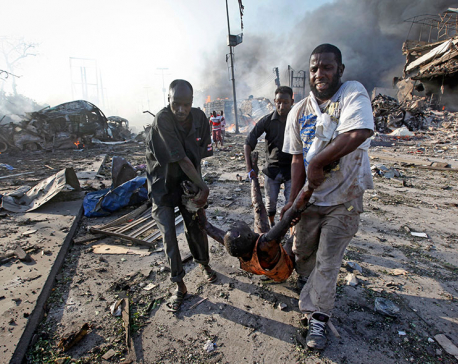
Reporters Without Borders says 65 journalists killed in 2017
PARIS, Dec 19: A total of 65 journalists and media workers were killed in 2017, the lowest toll in 14 years,... Read More...

300 athletes, two journalists honored in Palpa
PALPA, Aug 13: The District Sports Development Committee, Palpa, has honored 300 athletes and two journalists on the occasion of... Read More...




Just In
- SC rejects writ petition filed against Home Minister Lamichhane
- Nepal and China sign two agreements in the presence of Finance Minister Pun
- Pun released on bail in Supreme Cooperative fraud case
- Govt should not look for enforcing populist budget for next FY: Former finance ministers
- DoFE requests relevant parties to provide essential facilities to foreign workers traveling abroad
- Foundation stone laid for building a school in Darchula with Indian financial assistance
- 151 projects to be showcased for FDI in Third Investment Summit
- Police disclose identity of seven individuals arrested with almost 2 kg gold and more than Rs 10 million in cash




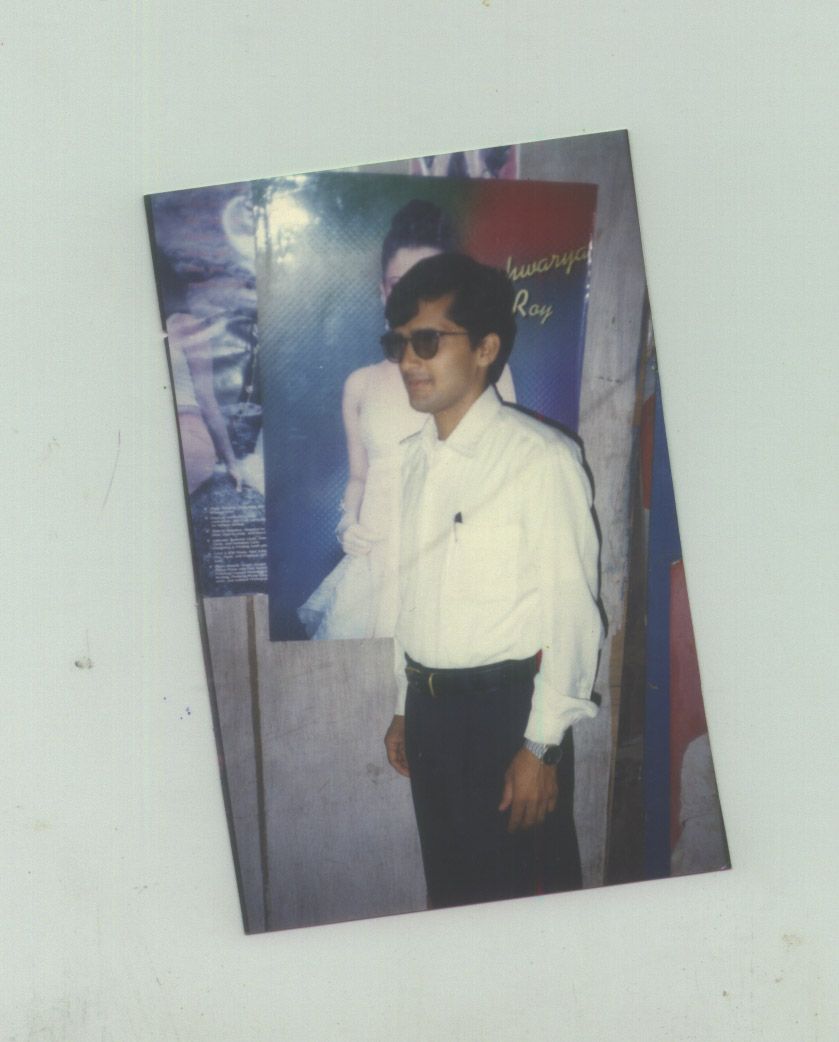
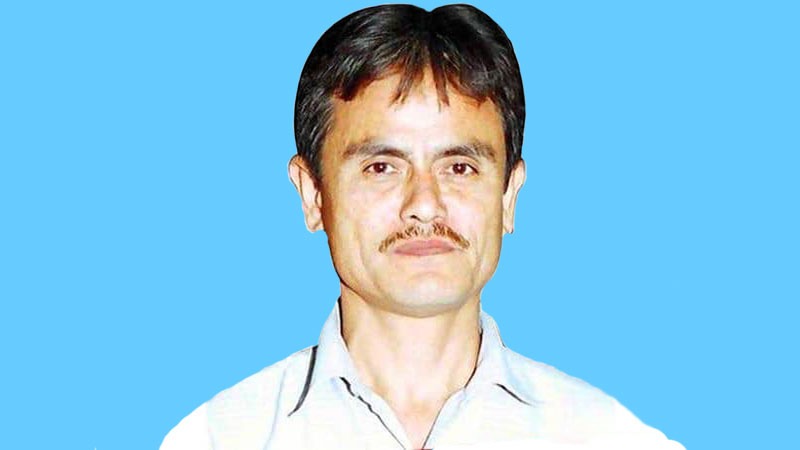
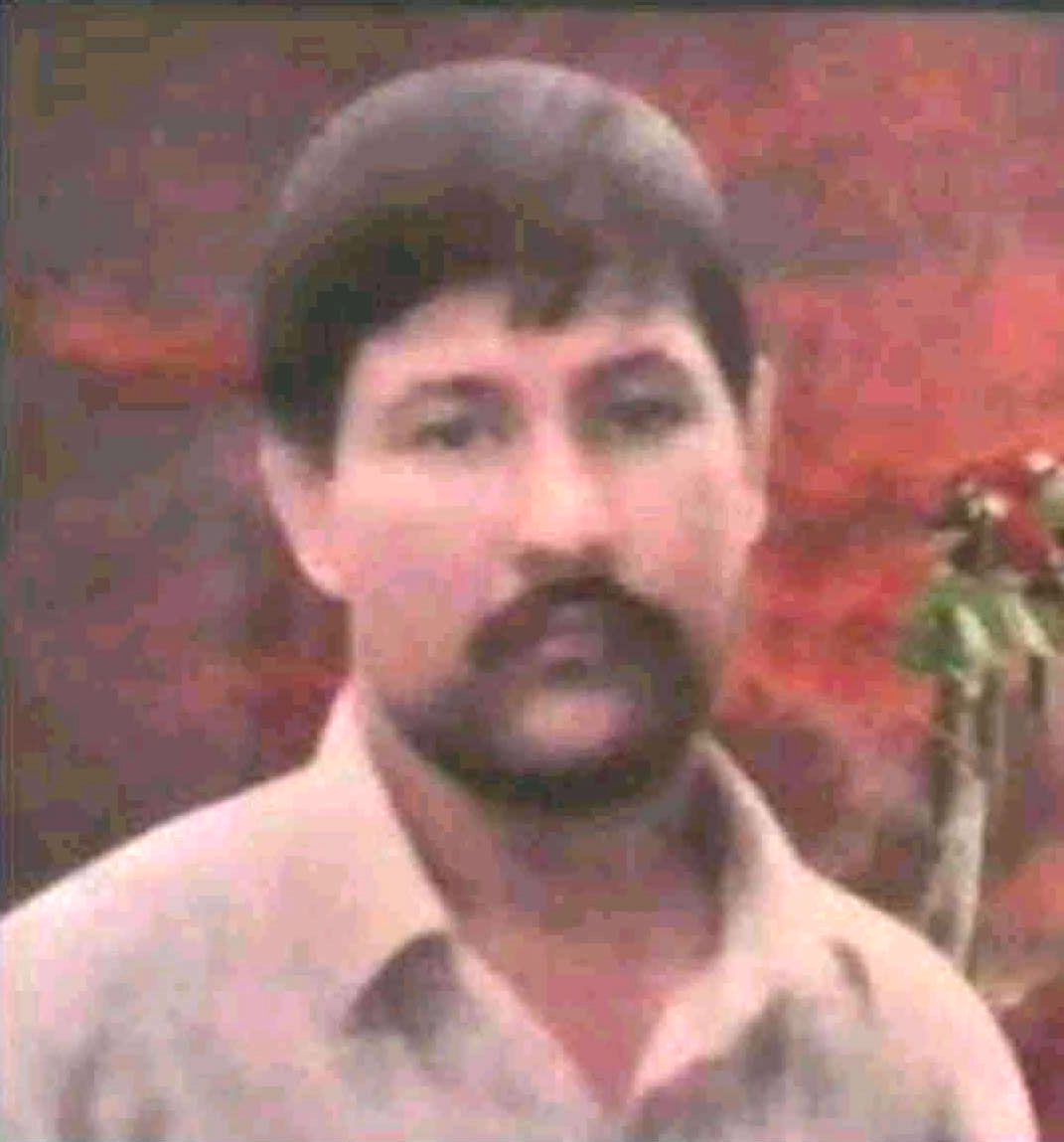
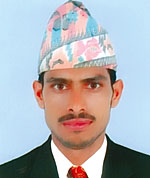








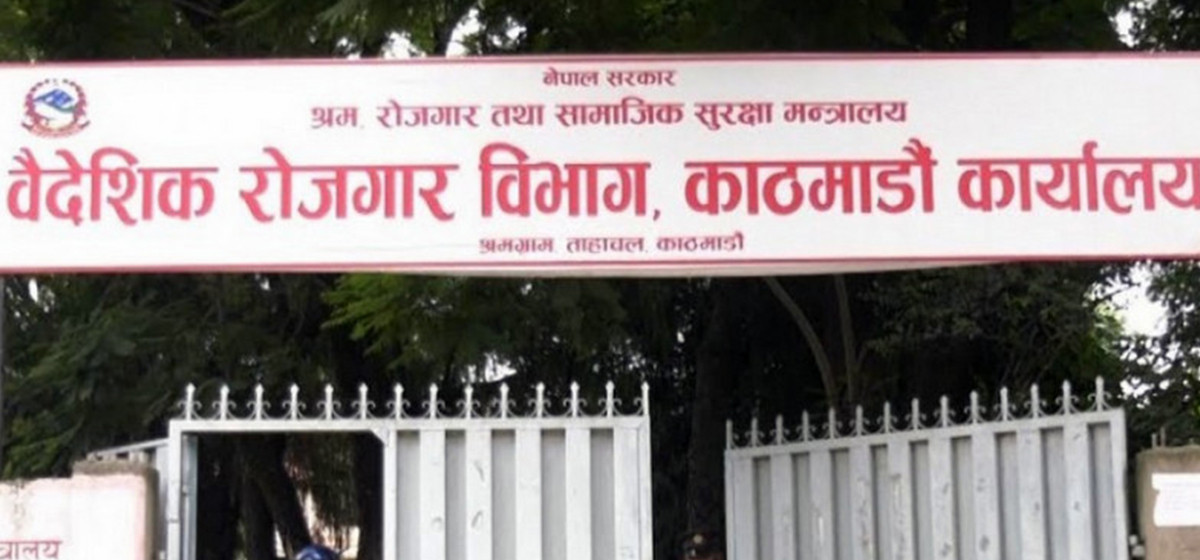
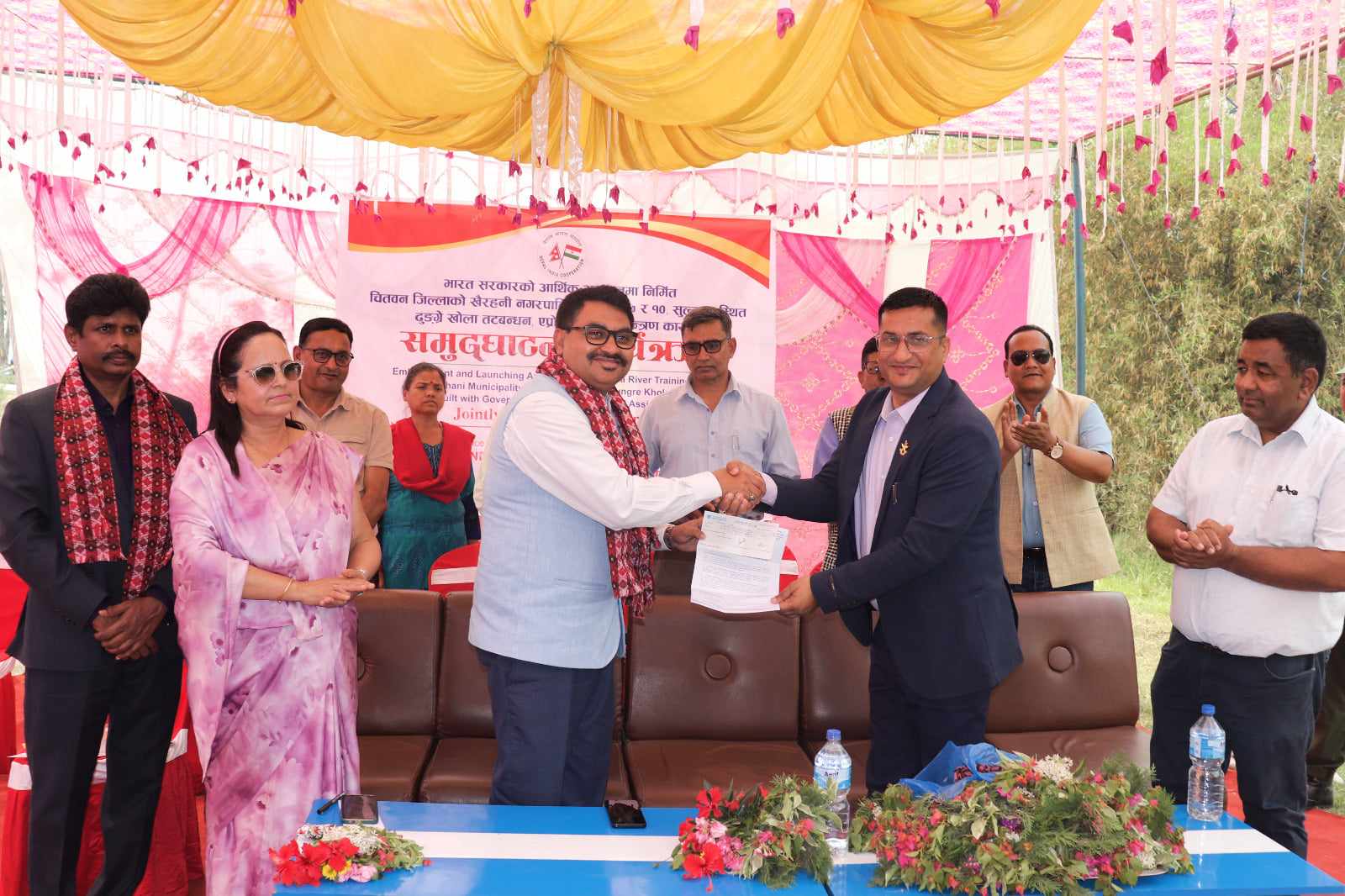


Leave A Comment